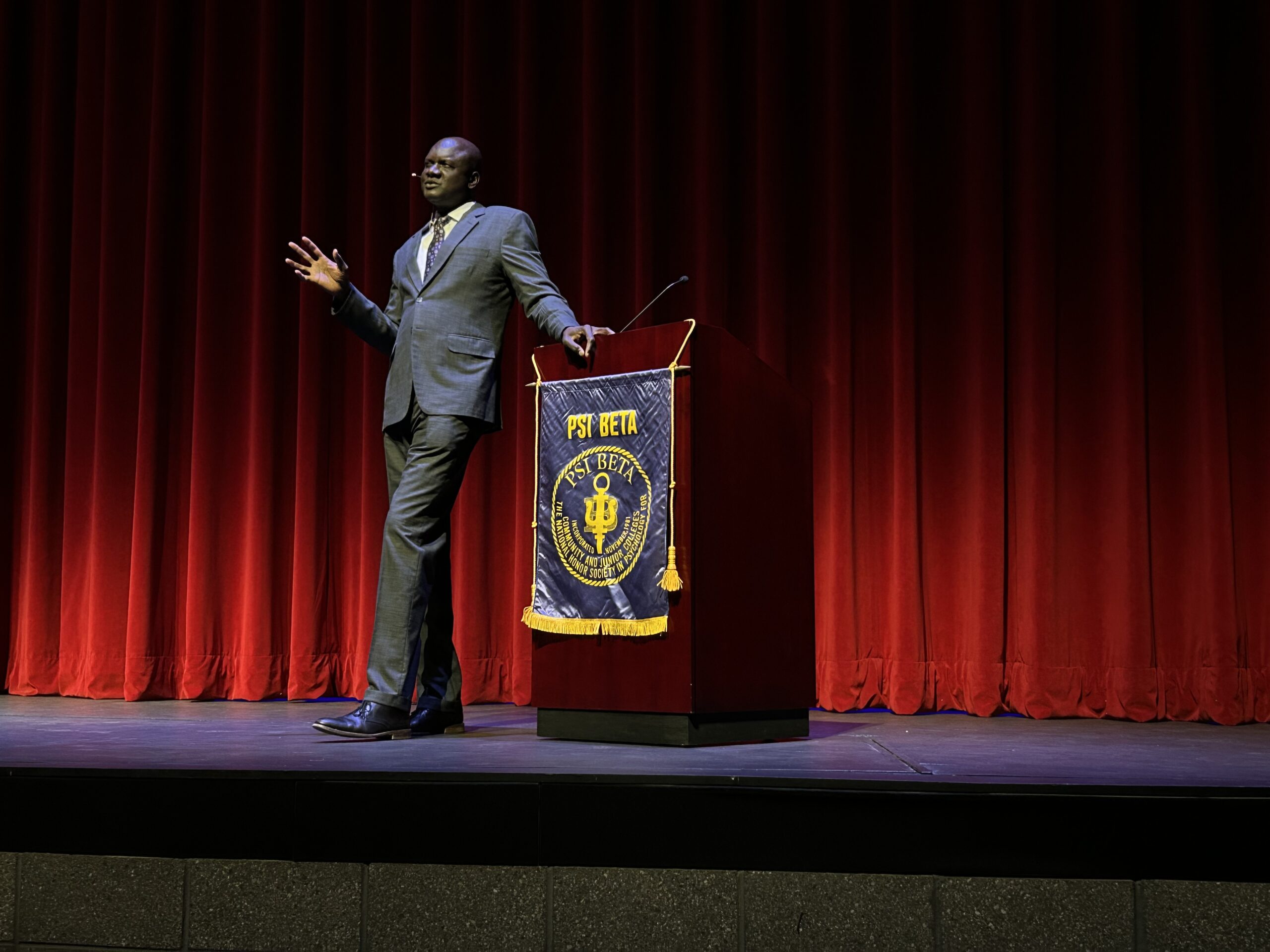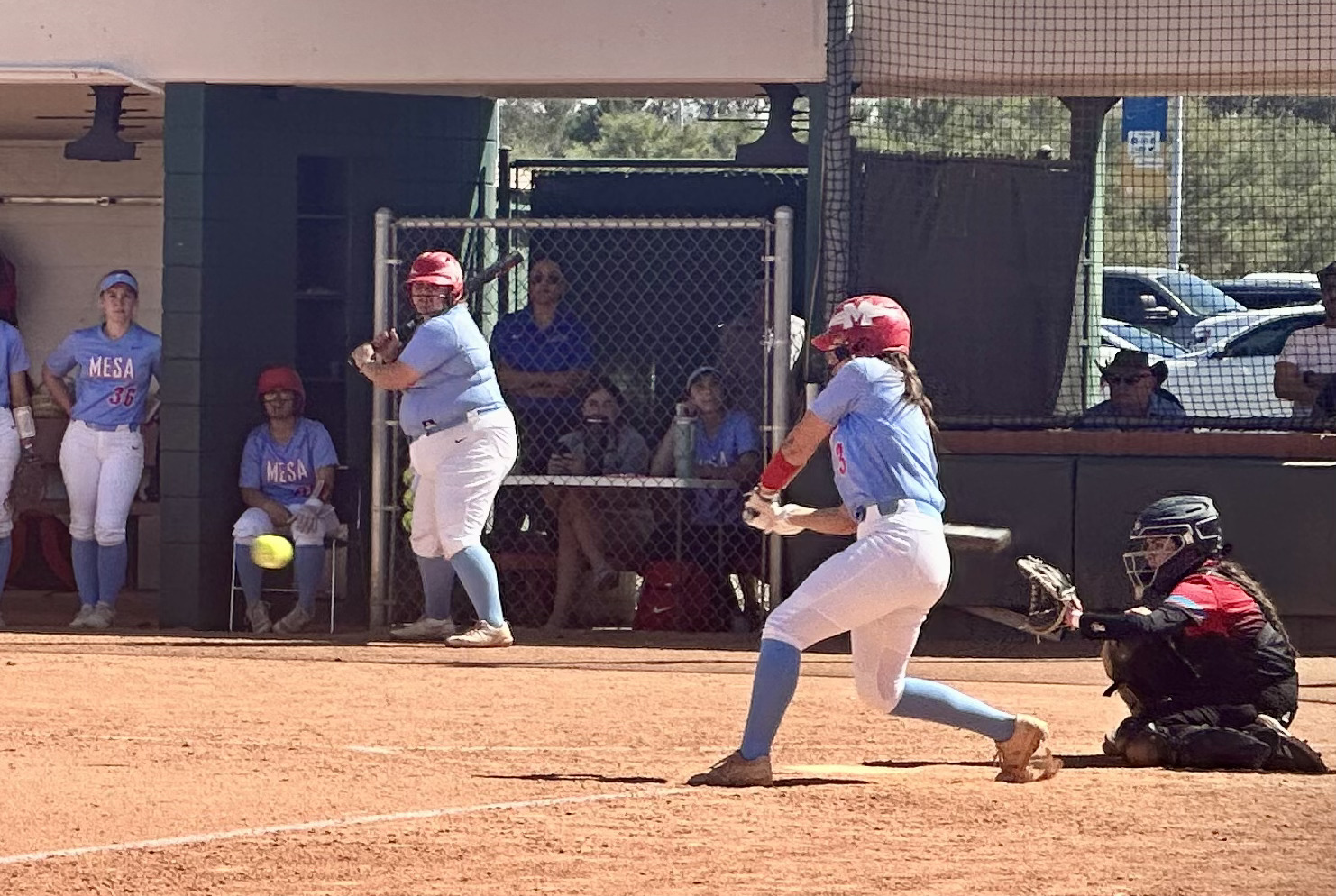MCC donors save lives with campus blood drive
Milicent Obbards
Approximately 868 lives were saved by donations made at a blood drive held on the Dobson and Red Mountain campuses.
Each semester, United Blood Services, a nonprofit community blood center, parks their red bus in front of the Kirk Center and allows students and faculty the opportunity to become big heroes in a small way.
Beginning in 1943, UBS started serving Arizona, and to date, more than 3.5 million Arizonans depending on UBS and volunteer donors to supply blood.
“When a person donates blood, on average they help two patients,” Sue Thew, a spokesperson for UBS, said.
Jami-lyn Hinson, 25, a forensic chemistry student, has been donating her A- positive blood since the age of 18.
“I’m a firm believer in ‘karma;’ you never know when you will need (blood). I have been fortunate enough that I have never needed a transfusion, but I know people who have,” Hinson said.
“I honestly believe all good citizens should donate,” Hinson said.
Hospitals in the east valley depend entirely on UBS to provide the blood, plasma and platelets needed by their patients. In addition to meeting local needs, the blood bank distributes to 54 hospitals statewide.
To meet requirements, the need for blood donors is about 700 people a day.
“It’s not just the 700 (donors),” Thew said. “It all boils down to how compatible your blood type is with other patients. Each blood type plays it sown unique role in the blood supply.”
A lesser-known aspect associated with donations is the shelf life of blood. Donations are seperated into three components and each will vary, as a result, blood waste will occur.
Red blood cells have a shelf life of 42 days once donated. Platelets undergo a processing period of up to 36 hours, in addition to being matched and transfused to a donor within three days, giving them a total shelf life of five days. Plasma is the only component that can be stored frozen; it is good for one year.
The most needed blood type is O-negative as it is universal and can be substituted for every blood-type, in regards to red blood cells.
“It’s not necessarily how common or rare your blood is that makes it important, it’s what kind of flexibility it offers to the blood supply,” Thew said.
Donations are sent to a laboratory where more than a dozen tests are preformed to ensure there is not an antibody in the blood that could be harmful to the patient.
Preparing for a donation will require minimal efforts from donors, while providing maximum results for patients.
“The most important thing to do is come well hydrated to the blood drive, because the more blood you have in your system the bigger your veins are and the quicker you can donate,” Thew said.
“You cannot wait until there is an emergency to donate, because it’s the blood on the shelves that saves lives. It is important people develop that lifelong habit of donating blood.” Thew said.
For more information on United Blood Services or to donate blood please go to www.UnitedBloodServicesAZ.org or call the donor hotline at (480) 675 5497.









